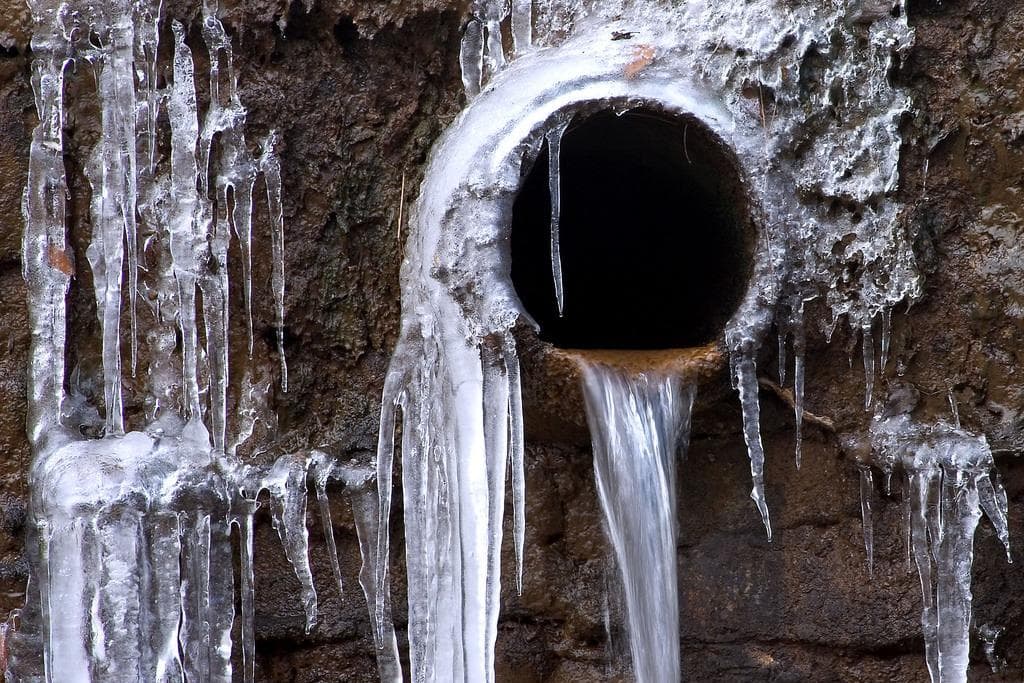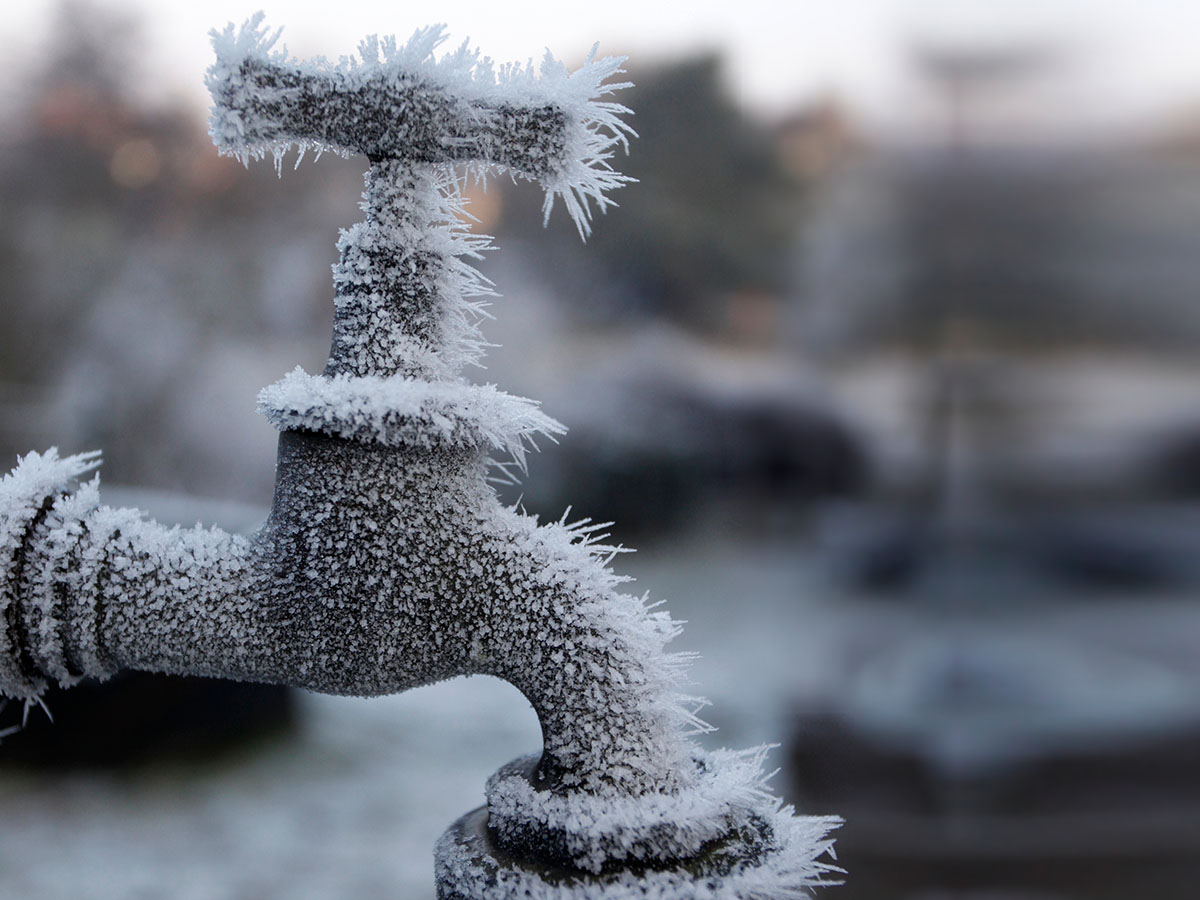Important Advice for Preventing Frozen Pipes in Cold Weather Seasons
Important Advice for Preventing Frozen Pipes in Cold Weather Seasons
Blog Article
Just how do you feel in regards to How to Prevent Your Pipes From Freezing?

Winter can ruin your pipes, especially by freezing pipelines. Right here's exactly how to prevent it from taking place and what to do if it does.
Intro
As temperature levels decrease, the threat of frozen pipes rises, possibly bring about pricey fixings and water damages. Recognizing exactly how to avoid frozen pipelines is vital for house owners in chilly environments.
Avoidance Tips
Protecting prone pipes
Cover pipelines in insulation sleeves or make use of warmth tape to protect them from freezing temperatures. Concentrate on pipelines in unheated or external locations of the home.
Home heating methods
Keep interior rooms properly heated, specifically locations with plumbing. Open closet doors to enable warm air to flow around pipes under sinks.
How to recognize frozen pipelines
Try to find decreased water circulation from faucets, uncommon smells or noises from pipelines, and visible frost on exposed pipelines.
Long-Term Solutions
Structural modifications
Think about rerouting pipes far from outside walls or unheated locations. Add added insulation to attics, cellars, and crawl spaces.
Updating insulation
Purchase top quality insulation for pipelines, attics, and wall surfaces. Correct insulation aids preserve consistent temperature levels and lowers the risk of frozen pipes.
Protecting Outside Plumbing
Yard hose pipes and exterior taps
Separate and drain yard hoses before winter season. Set up frost-proof spigots or cover outdoor taps with shielded caps.
Recognizing Icy Pipelines
What creates pipes to freeze?
Pipelines ice up when subjected to temperatures listed below 32 ° F (0 ° C) for expanded periods. As water inside the pipelines ices up, it expands, taxing the pipe wall surfaces and potentially creating them to rupture.
Threats and damages
Icy pipes can result in supply of water disturbances, property damages, and pricey repair work. Ruptured pipelines can flooding homes and cause comprehensive architectural damages.
Indicators of Frozen Pipes
Determining frozen pipes early can prevent them from rupturing.
What to Do If Your Pipes Freeze
Immediate actions to take
If you suspect icy pipelines, maintain taps open to ease stress as the ice melts. Make use of a hairdryer or towels taken in hot water to thaw pipelines gradually.
Verdict
Protecting against icy pipelines requires proactive procedures and quick reactions. By understanding the reasons, indications, and preventive measures, home owners can safeguard their pipes during winter.
Helpful Tips to Prevent Frozen Pipes this Winter
UNDERSTANDING THE BASICS: WHY PIPES FREEZE AND WHY IT’S A PROBLEM
Water freezing inside pipes is common during the winter months, but understanding why pipes freeze, and the potential problems it can cause is crucial in preventing such incidents. This section will delve into the basics of why pipes freeze and the associated problems that may arise.
THE SCIENCE BEHIND FROZEN PIPES
When water reaches freezing temperatures, it undergoes a physical transformation and solidifies into ice. This expansion of water as it freezes is the primary reason pipes can burst. As the water inside the pipe freezes, it expands, creating immense pressure on the walls. If the pressure becomes too great, the pipe can crack or rupture, leading to leaks and water damage.
FACTORS THAT CONTRIBUTE TO PIPE FREEZING
Low Temperatures: Extremely cold weather, especially below freezing, increases the risk of pipes freezing. Uninsulated or Poorly Insulated Pipes: Pipes located in unheated areas, such as basements, crawl spaces, or attics, are more prone to freezing. Insufficient insulation or lack of insulation altogether exacerbates the problem. Exterior Wall Exposure: Pipes running along exterior walls are susceptible to freezing as they encounter colder temperatures outside. Lack of Heating or Temperature Regulation: Inadequate heating or inconsistent temperature control in your home can contribute to frozen pipes. PROBLEMS CAUSED BY FROZEN PIPES
- Pipe Bursting: As mentioned earlier, the expansion of water as it freezes can cause pipes to burst, resulting in significant water damage.
- Water Damage: When pipes burst, it can lead to flooding and water damage to your property, including walls, ceilings, flooring, and personal belongings.
- Structural Damage: Prolonged exposure to water from burst pipes can compromise the structural integrity of your home, leading to costly repairs.
- Mold and Mildew Growth: Excess moisture from water damage can create a favorable environment for mold and mildew growth, posing health risks to occupants.
- Disrupted Water Supply: Frozen pipes can also result in a complete or partial loss of water supply until the issue is resolved.
WHY CERTAIN PIPES ARE MORE PRONE TO FREEZING
- Location: Pipes located in unheated or poorly insulated areas, such as basements, crawl spaces, attics, or exterior walls, are at higher risk of freezing.
- Exterior Pipes: Outdoor pipes, such as those used for irrigation or exposed plumbing, are particularly vulnerable to freezing as they are directly exposed to the elements.
- Supply Lines: Pipes that carry water from the main water supply into your home, including the main water line, are critical to protect as freezing in these lines can affect your entire plumbing system.
- Underground Pipes: Pipes buried underground, such as those connected to sprinkler systems or outdoor faucets, can be susceptible to freezing if not properly insulated.
https://busybusy.com/blog/helpful-tips-to-prevent-frozen-pipes-this-winter/

Do you like reading up on How To Avoid Freezing Pipes? Create a review down below. We would be pleased to know your opinions about this blog. We are looking forward that you come back again in the near future. Sharing is caring. Helping others is fun. I praise you for being here. Don't forget to check our website back soon.
Check This Out Report this page